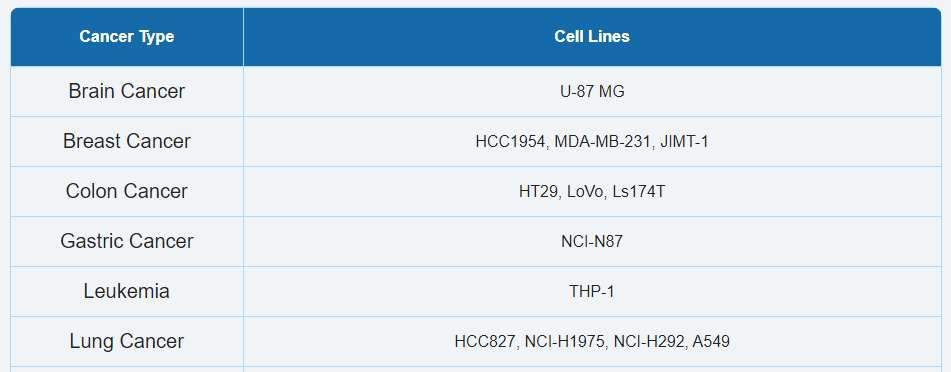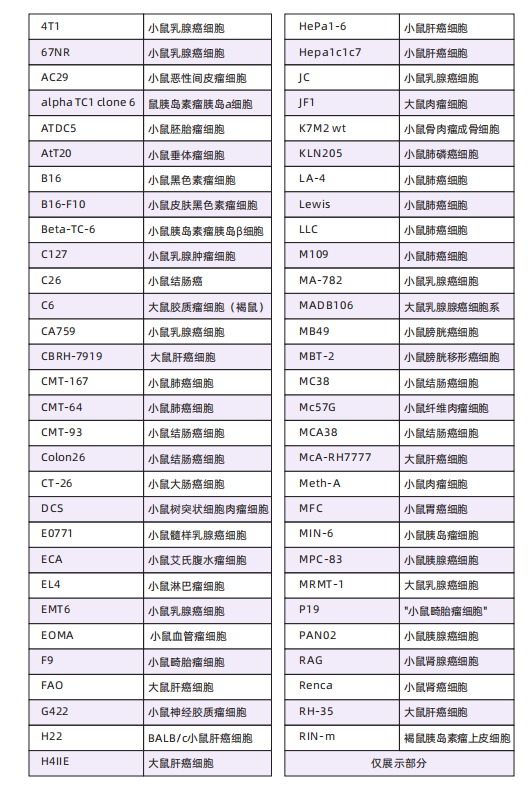Pre-clinical CRO Service
Humanized target gene tumor vaccine model
Basic Information
Tumor vaccines are designed to activate the autoimmune response to eliminate tumor cells, achieving the goal of eradicating tumors.
The mouse tumor vaccine model for humanized target gene involves the insertion of optimized humanized target genes into mouse tumor cell lines, allowing the expression of these target genes in the mouse tumor cell lines. Subsequently, these cell lines are subcutaneously implanted into mice. We can design multiple efficacy screening schemes based on the various tumor vaccines provided by client. Single or multiple tumor vaccines can be injected into mice to enhance their immune responses to suppress the growth of tumor cells. Based on the differences in growth inhibition, we can screen out single tumor vaccine or combinations of vaccines that are effective against the target gene with low cost and high-throughput.
Jennio can design and construct personalized humanized target genes according to the customer's requirements. Based on cancer types, we can provide various mouse tumor vaccine model for humanized target gene to evaluate the effect of tumor vaccines. Common tumor types include breast cancer, lung cancer, colorectal cancer, etc. Animal experiments are conducted using mice, hamsters, etc.
Advantages of mouse tumor vaccine model for humanized target gene:
1. Recipient mice possess a functional immune system.
2. Customize different humanized target options based on individual needs.
3. The cell line is easy to culture and expand, with low cost and high throughput.
4. The growth and drug sensitivity data of the cell line can be tracked and monitored in real-time.
With years of experience in the animal model industry, Jennio has established a large number of validated syngeneic tumor cell lines for various tumors. These cell lines have been extensively studied for their preclinical applications in vivo. The table below exhibits a part of effective syngeneic cell line tumor models we can provide:


Services we provide
Tumor vaccine evaluation models can be classified into two types: prophylactic and therapeutic.
1. Basic principles
Prophylactic tumor vaccine model: The prophylactic tumor vaccine model refers to the administration of tumor vaccine before injecting tumor cells, which is used to prime the immune system of mice in advance. After the injection of tumor cell lines, activated specific immune T cells can recognize specific targets and kill tumor cells, thereby reducing tumor formation rates or inhibiting tumor growth after formation.
Therapeutic tumor vaccine model: The therapeutic tumor vaccine model refers to the administration of tumor vaccine after injecting tumor cells, contributing to the activation of immune system of mice. The activated specific immune T cells can recognize specific targets and kill tumor cells, thereby inhibiting the tumor growth.
2. Application of tumor vaccine models
Prophylactic tumor vaccine model: We use prophylactic tumor vaccine model to explore whether tumor vaccines can prevent cancer recurrence after surgical removal of solid tumors.
Therapeutic tumor vaccine model: In cases where surgery is not suitable due to early-stage cancer (when the solid tumor is too small) or late-stage cancer (when the solid tumor is too large), we use prophylactic tumor vaccine model to explore whether tumor vaccines can inhibit tumor growth and reduce tumor size, which is expected to achieve surgical resection of the tumor.
3. Preparation

4. Data analysis
Prophylactic tumor vaccine model: We conduct a series of experiments and data analyses to assess the efficacy of the tumor vaccine in prophylactic mouse model. For example, we typically compare the duration and incidence of tumor formation, the survival period (progression-free survival and overall survival) after tumor formation between the experimental group and the control group. Additionally, we use immunostaining experiments to assess the level of immune response in the mouse spleen.
Therapeutic tumor vaccine model: We conduct a series of experiments and data analyses to assess the efficacy of the tumor vaccine in therapeutic mouse model, for example, we typically assess tumor growth (tumor growth curve, relative suppression rate) and survival period (overall survival) in experimental groups and control groups. Additionally, the immune response level in mouse spleen is also assessed by immunostaining assays.
Our Laboratory

